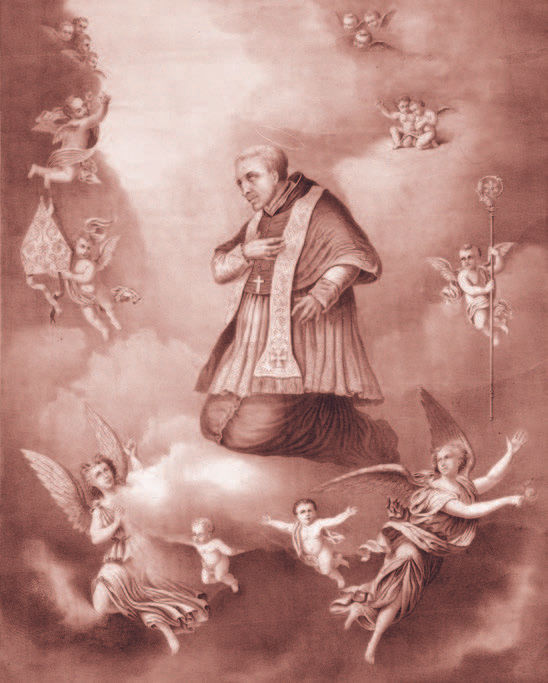St. Alphonsus de Liguori Dies at the Age of 91: August 1, 1787
- Catholic Textbook Project

- Jul 28, 2025
- 3 min read
This text comes from our book, Light to the Nations, Part II.
The call of Christ to a more serious life of devotion was answered by a brilliant young man of Naples. This young man, Alphonsus de Liguori, was a talented lawyer who loved the pleasures that life offered. He loved them so much that, though a reasonably devout youth, he began to neglect the prayers and devotions that he had formerly practiced. One day in 1723, when he was 26, he was greatly humiliated in court because the lawyer opposing him pointed out that Alphonsus had misinterpreted a legal document.
After vowing never again to practice law, Alphonsus fell into a depression that lifted only when he realized that God had sent this humiliation to him. Alphonsus began seeking to know what God was asking of him in this trial, and he soon received his answer. One day in August of 1723, while visiting the sick in a hospital, he heard a mysterious voice saying, “Leave the world and give yourself to me.” Nearly three months later, he joined a society of missionary priests. In 1726, Alphonsus was ordained a priest.
For six years after his ordination, Alphonsus preached to the poor in the countryside around Naples. Alphonsus’s heart was moved at their plight—for too long they had been left without the aid and ministry of the Church. When Alphonsus told Bishop Falcoza of Castellamare of the sad state of the rural poor, the bishop urged him to form a body of men to minister to them. On Sunday, November 9, 1732, Alphonsus and five companions knelt in the cathedral at Scala and vowed to form a new society of preachers. This was the beginning of the religious institute called the Congregation of the Most Holy Redeemer, or the Redemptorists.

The new society was not an immediate success. Opposed by members of his own institute, Alphonsus was left in 1733 with only one companion. But the Redemptorists grew in numbers and by 1746 had four houses. Three years later, Pope Benedict XIV approved the rule for the male branch of the Redemptorists, and in 1750, he approved the rule for the Redemptorist sisters.
Yet the Redemptorists had their enemies. The Bourbon king of Naples opposed them, and after many years it appeared that even the pope had turned against Alphonsus. In 1781, Pope Pius VI refused to recognize the Redemptorist houses in the kingdom of Naples and did not recognize Alphonsus as the head of the institute he had founded.
This was not Alphonsus’s only suffering. In 1752, bad health forced him to cut back on the missions of preaching that he had carried for over 25 years. In 1762, Pope Clement XIII ordered him to become bishop of Sant’Agatha dei Gotti in central Italy, a small and very poor diocese. Despite his increasingly bad health, Alphonsus worked diligently, in weeping and prayer, to inspire the many corrupt clergy of the diocese to better things, to teach the thousands of uninstructed faithful, to feed the poor, and to reform monasteries and convents. For many years he was so sickly that he could not leave his room. There, in addition to his other work, he composed works of devotion, defenses of the Faith, and works of moral and dogmatic theology—for which the Church has given him the title of “Doctor of the Church.”
When, in 1775, Pope Pius VI allowed him to retire from his see, Alphonsus prepared himself to die. He was 79 years old and suffering great infirmities—a bout of rheumatic fever had left him partially paralyzed in 1769. Yet he lingered on for 12 more years.
The greatness of St. Alphonsus de Liguori can be seen in his abundant charity and abandonment to God’s will. In the face of all the sufferings of his life, his constant prayer was, “Lord, I wish all that you wish, I desire only what you desire.” In that desire he died, on August 1, 1787, at the age of 91.
The Church of the 18th century reveals the truth of what St. Paul had written 1,800 years before—“Where sin increased, grace abounded all the more” (Romans 5:20). Many were the sins of Catholic clergy, rulers, nobility, and the common laity; but many too were the signs of spiritual health and renewal. The Church would soon be tested by a great revolution, but she would not be destroyed by it. If anything, she would be purified by her time of trial and emerge from it prepared to take on the challenges of the new era that lay before her.


